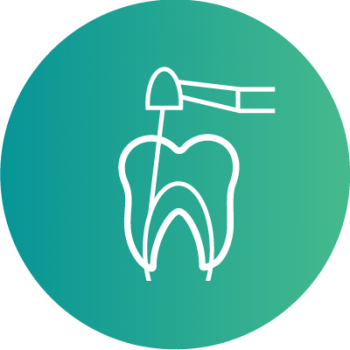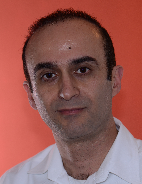
Endodontics
All dentists with available appointment times are listed here. Super easy booking with just one click!
Dr.dent.
Insurances: Dentist of Choice , Private Practice
Clinic: Aventurin dental practice
Address:
Graben 31,Top 11
1010 Vienna
Featured for
- Tooth whitening and dental bleaching
- Dental implant
- Cosmetic dentistry
-
Tooth whitening and dental bleaching
-
Dental implant
- Cosmetic dentistry
Medic.Dent., MSc
Insurances: SVS , KFA , Dentist of Choice , Private Practice
Address:
Leonard-Bernstein Straße 8/1/EG6
1220 Vienna
Austria
Show Specialties
- Private Practice Dentist
- Dentist of Choice
- Dental Radiology
- Endodontics
- Periodontology
- Implantology
- Orthodontics removable (braces)
- Orthodontics fixed (braces)
- Prosthodontics
- Oral Surgery
- Prevention
- General Dentistry
Insurances: All Insurances
Address:
Taborstr. 76/1/3, 1020 Wien
1020 Vienna
Austria
Show Specialties
- Dental Radiology
- Endodontics
- Periodontology
- Implantology
- Prosthodontics
- Oral Surgery
- Prevention
- General Dentistry
Dr.med.dent.
Insurances: KFA , Dentist of Choice , Private Practice
Address:
Werdertorgasse 12/8, 1010 Wien
1010 Vienna
Austria
Show Specialties
- Private Practice Dentist
- Dentist of Choice
- Dental Radiology
- Endodontics
- Pediatric Dentistry
- Periodontology
- Implantology
- Prosthodontics
- Oral Surgery
- Prevention
- General Dentistry
Dr.med.dent., Msc
Insurances: ÖGK , SVS , VA , PVA , BVAEB , KFA , Private Practice
Address:
Burggasse 105/2
1070 Vienna
Austria
Show Specialties
- Private Practice Dentist
- Dental Radiology
- Endodontics
- Pediatric Dentistry
- Periodontology
- Implantology
- Orthodontics removable (braces)
- Orthodontics fixed (braces)
- Prosthodontics
- Oral Surgery
- Prevention
- General Dentistry
Dr. Med. Dent.
Insurances: Dentist of Choice , Private Practice
Address:
Karl-Popper-Str. 8 / 3 Stock
1100 Vienna
Austria
Show Specialties
- Private Practice Dentist
- Dentist of Choice
- Dental Radiology
- Endodontics
- Pediatric Dentistry
- Periodontology
- Implantology
- Orthodontics removable (braces)
- Prosthodontics
- Oral Surgery
- Prevention
- General Dentistry
Dr.med.dent.
Insurances: SVS , KFA , Dentist of Choice , Private Practice
Address:
Südtiroler Platz 7/10
1040 Vienna
Austria
Show Specialties
- Private Practice Dentist
- Dentist of Choice
- Dental Radiology
- Endodontics
- Pediatric Dentistry
- Periodontology
- Implantology
- Orthodontics removable (braces)
- Orthodontics fixed (braces)
- Prosthodontics
- Oral Surgery
- Prevention
- General Dentistry
Insurances: SVS , KFA , Dentist of Choice , Private Practice
Address:
Porzellangasse 27/7A
1090 Vienna
Austria
Show Specialties
- Private Practice Dentist
- Dentist of Choice
- Dental Radiology
- Endodontics
- Pediatric Dentistry
- Periodontology
- Implantology
- Orthodontics removable (braces)
- Orthodontics fixed (braces)
- Prosthodontics
- Oral Surgery
- Prevention
- General Dentistry
Dr. med. dent.
Insurances: Dentist of Choice , Private Practice
Clinic: Aventurin dental practice
Address:
Graben 31 4/11
1010 Vienna
Austria
Show Specialties
- Private Practice Dentist
- Dentist of Choice
- Dental Radiology
- Endodontics
- Pediatric Dentistry
- Periodontology
- Implantology
- Orthodontics removable (braces)
- Orthodontics fixed (braces)
- Prosthodontics
- Prevention
- General Dentistry
Insurances: All Insurances , ÖGK , SVS , BVAEB , KFA
Address:
Zahnarztpraxis Dr. Sablania
Spezialisten- Zahnspange, Implantate
Ordination/ Forsthausgasse 16-20, Stiege 3, EG, 1200 Wien,
Mo - Fr : 10 - 17 Uhr
1200 Vienna
Austria
Show Specialties
- Dental Radiology
- Endodontics
- Pediatric Dentistry
- Periodontology
- Implantology
- Orthodontics removable (braces)
- Orthodontics fixed (braces)
- Prosthodontics
- Oral Surgery
- Prevention
- General Dentistry
Dr. med. dent.
Insurances: All Insurances , ÖGK , SVS , VA , PVA , BVAEB , KFA , Private Practice
Address:
Kirchstetterngasse 49/2
1160 Vienna
Austria
Show Specialties
- Private Practice Dentist
- Dental Radiology
- Endodontics
- Pediatric Dentistry
- Periodontology
- Prosthodontics
- Oral Surgery
- Prevention
- General Dentistry
What is endodontics?
The field of endodontics deals with sicknesses of the insides of teeth and provides treatments for inflammations of the pulpa, which includes dental pulp, blood, lymphatic vessels, and connective tissue on the inside of teeth. Conditions affecting the periodontium also fall into the area of endodontics as long as they can be addressed with treatments focusing directly on the tooth roots and the dental pulpa. The most frequently performed endodontic procedure is a root canal treatment which, in some unfortunate cases, has to be repeated. These repeat procedures are known as root canal revisions. Should even a revision not successfully address a patient's dental issue, the dentist has to perform a so-called tooth root amputation. A less frequently performed procedure that also falls into the realm of endodontics is the so-called pulp capping (sealing of the laid-open dental pulpa).When do I need a root canal procedure?
Root canal procedures become necessary when the inside of a tooth becomes inflamed and has to, therefore, be removed. In such cases, a dentist speaks of an inflammation of the dental pulpa which starts right beneath the crown of a tooth and extends all the way through the end of its roots. The dental pulpa is important for teeth that are still in the growth phase but can be removed from fully developed teeth without endangering the structure of the tooth itself. As a result of advanced tooth decay (caries) bacteria can reach the inside of a tooth and cause inflammations that can slowly destroy the dental pulpa. If such inflammations remain unnoticed for too long, they can slowly but certainly reach the jaw bone and then create abscesses around the tip of the dental root. These abscesses are then visible in the form of little bumps above infected teeth. To cure these inflammations, a trained dentist has to perform a root canal procedure to remove the inflamed tissue from the inside of the infected tooth and to then disinfect and permanently seal it to prevent reinfection.How is a root canal procedure performed?
At the start of a root canal procedure, the dentist applies a local anesthetic to the infected tooth and then separates it from healthy teeth via a so-called cofferdam to ensure optimal visibility and a clear work area. Afterwards, the dentist drills into the inflamed tooth to open up its root canals and measure their exact length and shapes via a computer-assisted measurement device. To ensure a successful outcome, the dentist has to identify every single root canal and clear it out because missing even a single small one will almost certainly result in a reinfection of the tooth which will then need to be treated via a revision procedure. The next step in the procedure is the removal of the dead and inflamed dental pulpa and the filing of the root canals to make sure that they are ready for sealing after rinsing it with a disinfecting fluid. The rinsing process can be completed during the first appointment or the dentist may send the patient home with disinfecting fluid inside of the treated tooth until a follow-up appointment a few days later. The last step of the process involves the sealing of the tooth with special filler material (in some cases, the dentist also places a crown on top of the treated tooth). Nowadays, anesthesia options are so effective that even invasive procedures like root canal treatments can be virtually pain-free for patients.What happens after a root canal procedure?
After a completed root canal procedure, it is essential to prevent reinfection. Therefore, many dentists equip treated teeth after a root canal treatment with a dental crown to optimally seal them and prevent bacteria from entering. Though there is never a 100% guarantee for any medical procedure, nowadays, root canal treatments are among the safest dental procedures and have a success rate of 95%+.Are there alternatives to a root canal procedure?
Unfortunately, once a dentist recommends a root canal treatment, it is usually too late for any other less invasive procedures. As a result, the only real alternative to a root canal procedure is a complete extraction (removal) of the inflamed tooth. Should a patient opt for the extraction option, he or she will have to accept the aesthetic drawbacks that go along with a missing tooth or expect to pay a significant extra amount for a professional dental implant to replace the extracted tooth. With that said, the conservation of an inflamed tooth is almost always the recommended option, meaning that a dental implant should be considered as the solution of last resort.How much does a root canal procedure cost?
The exact costs of a root canal treatment depend on which tooth needs to be treated and how many tooth roots need to be cleaned out and disinfected, because larger teeth have more and longer roots and require more time and the use of more materials. The total procedure costs also vary from patient to patient because, depending on their insurance carrier, they may receive reimbursements starting at several hundred Euro and up to € 1,500+ for especially severe cases.We hope that you found this primer helpful and invite you to take a look at our blog as well as at our root canal landing page for more information.
All the Best & see you soon, Ace!










